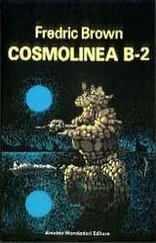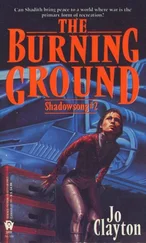Эллен Глазгоу - Barren Ground
Здесь есть возможность читать онлайн «Эллен Глазгоу - Barren Ground» весь текст электронной книги совершенно бесплатно (целиком полную версию без сокращений). В некоторых случаях можно слушать аудио, скачать через торрент в формате fb2 и присутствует краткое содержание. Жанр: Классическая проза, на английском языке. Описание произведения, (предисловие) а так же отзывы посетителей доступны на портале библиотеки ЛибКат.
- Название:Barren Ground
- Автор:
- Жанр:
- Год:неизвестен
- ISBN:нет данных
- Рейтинг книги:3 / 5. Голосов: 1
-
Избранное:Добавить в избранное
- Отзывы:
-
Ваша оценка:
- 60
- 1
- 2
- 3
- 4
- 5
Barren Ground: краткое содержание, описание и аннотация
Предлагаем к чтению аннотацию, описание, краткое содержание или предисловие (зависит от того, что написал сам автор книги «Barren Ground»). Если вы не нашли необходимую информацию о книге — напишите в комментариях, мы постараемся отыскать её.
Barren Ground — читать онлайн бесплатно полную книгу (весь текст) целиком
Ниже представлен текст книги, разбитый по страницам. Система сохранения места последней прочитанной страницы, позволяет с удобством читать онлайн бесплатно книгу «Barren Ground», без необходимости каждый раз заново искать на чём Вы остановились. Поставьте закладку, и сможете в любой момент перейти на страницу, на которой закончили чтение.
Интервал:
Закладка:
He lay straight and stiff under the quilts, and above the variegated pattern his features protruded, shrivelled, inanimate, expressionless, like the face of a mummy that would crumble to dust at a touch. His eyes beneath his closed lids were sunk in hollows from which the yellow stains spilled over on his bluish cheeks. The chin under the short stubble of beard was thrust out as if it would pierce the withered skin. It was not the face of Jason Greylock. What she looked on was merely a blank collection of features from which poverty and illness had drained all human intelligence. Turning away, she saw through a mist the doddering old woman who was fussing about the mattress and the decrepit manager who was too ancient and incompetent for more serious employment.
"They've come for you. We'll get you away," Doctor Stout said in his cheerful tones which rang with an artificial resonance. Then he turned to Dorinda. "The stimulant is wearing off. He'll need something stronger before he is able to start."
At the words, Jason opened his eyes and looked straight up at the sky. "I am thirsty," he said, while his hand made an empty clawlike gesture. If he were aware of their figures, she realized that they meant nothing to him. He had withdrawn from the external world into the darkness of some labyrinth where physical sensations were the only realities. While she watched him it came over her with a shock that the last thing to die in a human being is not thought, is not even spirit, but sensation.
One of the old women, who appeared to be in authority, brought a glass of blue milk, and taking a flask from his pocket the doctor added a measure of whiskey. Then lifting Jason's head, he held the glass to his lips.
Suddenly, it seemed to Dorinda that her impressions of the actual scene dissolved and slipped like quicksilver from her mind. She ceased to look, ceased to think, overcome by an emotion which was not grief, though it was the very essence of sadness. Closing her eyes, she waited for some sound or touch that would restore the fading glow of her reason. Why was she here? Where was it leading her? What was the meaning of it all?
She heard a strangled voice gasp, "You're hurting me," and looking round she saw that the doctor and John Abner were carrying Jason to the car.
"You'll feel better presently," the doctor said soothingly. "I'll give you something for the pain."
Like an automaton, she followed them; like an automaton, she stepped into the car and took her place by Jason's side on the back seat. She had intended to drive home, but she knew that she was incapable of controlling the big car. "Some one had better be back here with him," the doctor had insisted, and she had obeyed his directions in silence. "I've put the whiskey under the rug. Give him an eggnog as soon as you put him to bed."
The car started slowly, and they had driven for some miles before she found sufficient courage to turn and look at the figure beside her. Dazed by the sedative, he was staring straight in front of him, oblivious of the autumn sunshine, oblivious of the uninteresting country, oblivious of her presence, lost beyond reach in that dark labyrinth of sensation. His face was the face of one who had come to the edge of the world and looked over. It expressed not pain, not despair even, but nothingness. A grey woollen comforter was tied over his head, and his features appeared to have fallen away beneath the mummy-like covering. He was neither young nor old, she saw; he was over and done with, a thing with which time had finished. And he was a stranger to her! She had never loved him; she had never known him until to-day. The weight on her heart was so heavy that it was suffocating her. Again she thought: "Why am I here? What is the meaning of it all?" Again she felt as she had felt at her father's death: "The pathos of life is worse than the tragedy."
They drove on in silence; but it was a silence that reverberated like thunder in her brain. Nothing and everything was over. Ahead of her the road sank between the autumn fields and the brilliant patches of woods. The blue haze swam before her in the direction of the river. They passed the same ragged white and black children, who held up the same withered flowers. The same labourers were at work in the fields, bent in the same gestures of ploughing. As they went by a house set far back from the road, with a little crooked path leading up to a white wicket-gate, she imagined herself walking up the path and through the wicket-gate into another life.
John Abner looked back. "Am I going too fast? He coughs as if he were choking."
She turned to Jason and replaced a pillow which had slipped from under his head. His boots, with lumps of red clay still clinging to them, were stretched out stiffly on the pile of rugs. And those worn boots with the earth on the soles seemed to her so poignantly moving that her eyes filled with tears. His cough stopped, and she spoke to him in a raised voice as if he were at a distance, "Are you suffering now?"
If he heard her, he made no response. It seemed to her while she looked at him that he was in reality at a distance, that everything but the shell of physical pain in which he was imprisoned had already perished. She wondered if he remembered her, or if her image had dropped from him, with other material objects, in that blind wilderness. From his apathy, she might have been no more to him than one of the old women in the poorhouse. A shiver ran over her, as if she had been touched by a dead hand. Youth, beauty, victory, revenge, — what did any of these things signify before the inevitable triumph of time?
Yes, time had revenged her. If she had stood still, if she had not lifted a finger to help, time would still have revenged her; for time, she saw, always revenges one. She thought of the hot agony of that other October afternoon. Of the patter of rain on the roof. Of the smell of wet grass underfoot. Of the sodden sky. Of the branches whipping her face.
They passed the station, where a train had just gone by; they passed the old Haney place, where the new German tenant was ploughing; they passed Honeycomb Farm and the fork of the road, where the burned cabin and the blasted oak used to be. The new gate stood there now, and beyond it, there was the sandy road through the meadows of joepye-weed and life-everlasting. Against the sky, she could still see unchanged the chimneys of Five Oaks. Then they spun easily down the wooded slope, crawled over the patch of corduroy road, and, turning in at the bridge, rolled up to the front porch of Old Farm.
"Well, we got him here," John Abner said, with a breath of relief.
As they helped Jason to alight, it seemed to Dorinda that his bones were crumbling beneath her touch. If she had awakened to find that the whole afternoon had been a nightmare, she would have felt no surprise. Even the quiet house, with its air of patient expectancy, startled her by its strangeness.
Mirandy, a big, strong, compassionate old negress, who was born for a nurse but had missed her vocation until she was too old to profit by it, came out to help, and among them they carried Jason into the spare room and put him to bed. His clothes were so soiled and ragged that John Abner went upstairs and brought down some woollen things of his own. A fire blazed in the cavernous fireplace. Ripples of light and shadow danced over the yellow walls. The whole room smelt of burning logs and of the branches of pine on the mantelpiece. Warmth, peace, comfort, enfolded them as they entered.
When they had undressed Jason and covered him up warmly, Dorinda brought the eggnog, and Mirandy slipped her arm under the pillow and raised his head while he drank it. The tormented look had gone from his face. About his mouth the outline of a smile flickered.
"It feels good," he said, and closed his eyes as the glass was taken away.
Читать дальшеИнтервал:
Закладка:
Похожие книги на «Barren Ground»
Представляем Вашему вниманию похожие книги на «Barren Ground» списком для выбора. Мы отобрали схожую по названию и смыслу литературу в надежде предоставить читателям больше вариантов отыскать новые, интересные, ещё непрочитанные произведения.
Обсуждение, отзывы о книге «Barren Ground» и просто собственные мнения читателей. Оставьте ваши комментарии, напишите, что Вы думаете о произведении, его смысле или главных героях. Укажите что конкретно понравилось, а что нет, и почему Вы так считаете.










![Эллен Дедженерес - Кроме шуток [Как полюбить себя, продать дуршлаг дорого, прокачать мозг с помощью телешоу и другие истории от Эллен Дедженерес] [litres]](/books/384873/ellen-dedzheneres-krome-shutok-kak-polyubit-sebya-p-thumb.webp)

